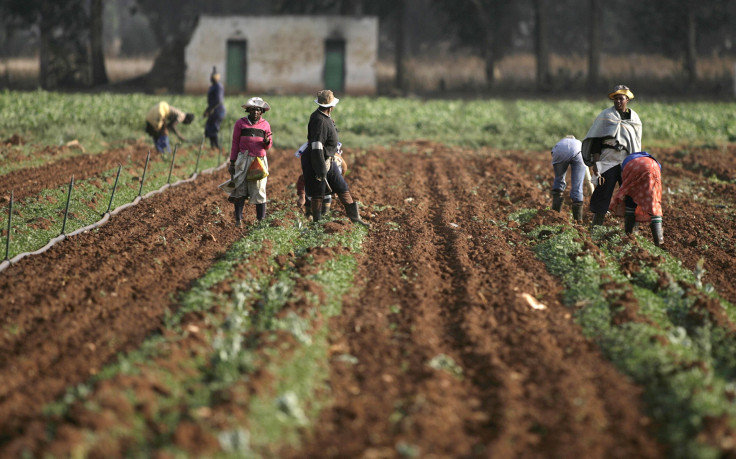Could Land Ownership Reform Be The Key To Solving African Food Insecurity Problems?

A better approach to land governance could be the key to solving some of Africa's endemic struggles with food insecurity and poverty, according to a new report from the World Bank. Africa's population, which already exceeds 1 billion, is projected to quadruple by end of the century. This unsustainable increase is even direr considering the precarious situation of agricultural workers across the continent.
The average African farmer, most of whom are women, is producing well below potential because she lacks the modern tools and techniques that could make the most of her small plot. Her land isn't formally registered, having been passed down to her family through the generations in accordance with a system determined decades ago, when her country achieved independence. If a major multinational company were to invest in her region, it might lay claim to her farm and the farms around her -- she and her family would then be forced to relocate, either to another village or to some already-overcrowded urban area. (It's estimated that half of all Africans will live in urban communities by 2050.) In the city as on the farm, the woman may yet again find herself living on land she owns only informally. In other words, she will be just as vulnerable -- if not more so -- to external forces as she was before.
This isn't an abstract scenario -- it happens all the time, driving up poverty rates and stunting development all over the continent. At the root of the problem is poor land governance; if farmers had legitimate titles to their land, they would have more power to leverage its potential and acquire legal recourse in the case of a land grab.
Reforming land governance policies could also have a huge impact on African agricultural output, which would in turn boost food security around the world. Of all the arable uncultivated land on earth, Africa is home to half -- about 202 million hectares. “Despite abundant land and mineral wealth, Africa remains poor,” Makhtar Diop, World Bank Vice President for Africa, writes in the report. “Improving land governance is vital for achieving rapid economic growth and translating it into significantly less poverty and more opportunity for Africans, including women who make up 70 percent of Africa’s farmers yet are locked out of land ownership due to customary laws. The status quo is unacceptable and must change so that all Africans can benefit from their land.”
The World Bank report, “Securing Africa’s Land for Shared Prosperity,” estimates that a joint effort to revamp land governance practices -- with participation from governments, development partners and experts -- could cost as little as $4.5 billion. Pilot programs to test land ownership reform techniques have already taken place in various sub-Saharan countries including Malawi, Ghana, Mozambique, Uganda and Benin. Based on these experiments, the report recommends a number of initiatives including providing training for farmers, securing tenure rights for community lands and empowering local authorities to help keep government policies inclusive and transparent.
© Copyright IBTimes 2024. All rights reserved.





















